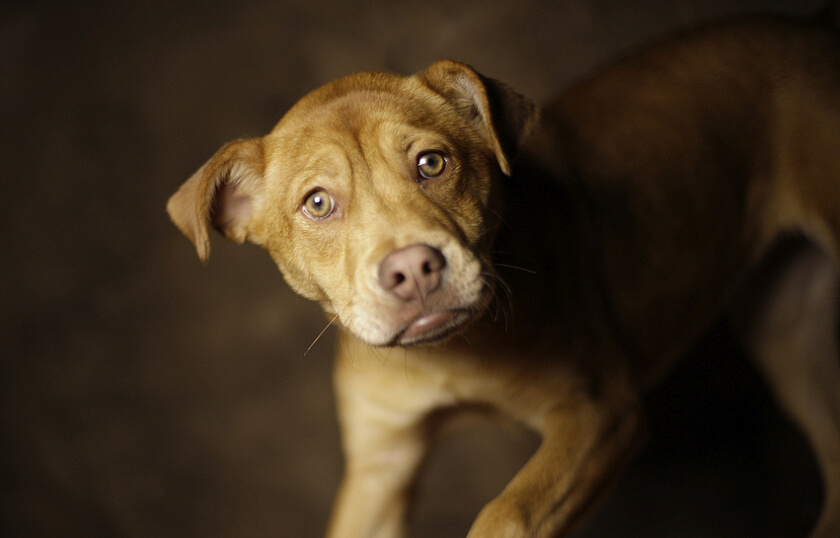Krogers has been keeping a dirty little secret: They have been aware, since late November, that their pet food was contaminated with aflatoxin and that dogs had already died as a direct result of consuming the pet food sold at Krogers before finally recalling the product in late December.
In fact, Krogers didn’t find the aflatoxin contamination at all. It wasn’t until consumer’s dogs started dying, that laboratories testing the dog food for the owners of dogs who died, found the deadly mold.
Dog’s deaths alert Krogers
The first dog died as a result of liver damage consistent with aflatoxicosis. A lab result showed the dog’s food was contaminated with a “high percentage of aflatoxin”.
Sadly, it wasn’t until the deaths of an untold number of dogs from extensive liver damage, and the subsequent results of tests of the pet food the dogs ate, that Kroger was made aware that there was something terribly wrong with their pet food.
It was for these reasons that Krogers was forced to announce a recall, and yet, when they finally got around to it, they didn’t even bother to mention in their press release the dogs that had died after eating their pet food.
Pets, trapped in a coal mine
In Marion Nestle’s aptly titled book, “Pet Food Politics the Chihuahua in the Coal Mine,” those poor dogs died as a result of Krogers failure to test their products for contaminants.
Kroger’s, and other manufacturers like them, take the calculated risk of foregoing the considerable expense of testing ingredients for contaminants with the risk that pets will act as the indicators of toxicity for them.
Dead pets are chump change
After all, dead pets are cheaper than having stringent quality control measures in place.
Their bottom line is profits before dead pets.
Do the math.
The Menu Foods payout for their debacle in causing the worst, and the most deadly, pet food recall in history, was a paltry $24 million.
$24 million is chump change to Menu Foods.
Take a look at Menu Foods’ sales figures: In 2006 their sales were $356.2 million and in 2007 their sales were $244.8 million dollars.
I think this scenario can be best summed up by a term the military uses to justify the death of innocent victims: Collateral damage.
N.C. Department of Agriculture press release announcing dog deaths
Kroger pet food recall initiated after testing at NCDA&CS labs
RALEIGH –Tests done at two state laboratories in west Raleigh are responsible for the Kroger pet food recall in 19 states. The N.C. Department of Agriculture and Consumer Services’ vet and feed labs were both involved in discovering the presence of aflatoxin in dog food after the deaths of several North Carolina dogs.
In late November, a cocker spaniel was necropsied at the Veterinary Division’s Rollins Diagnostic Laboratory and feed samples were referred to another laboratory after a pathologist identified liver damage consistent with aflatoxicosis. The feed sample came back with a high percentage of aflatoxin.
Last week, additional bags of food were collected and taken to the feed laboratory, part of the N.C. Food and Drug Protection Division’s Constable Laboratory system, after other dogs from the same kennel also died with symptoms consistent with aflatoxicosis. Lab tests showed high levels of aflatoxins in the dog food.
The dog food was traced to a plant in Tennessee, and NCDA&CS officials notified the U.S. Food and Drug Administration and Tennessee officials about the problem. The distributor, Kroger, voluntarily recalled bags of Pet Pride Cat Food, Pet Pride Kitten Formula Food, Old Yeller Chunks Dog Food, Kroger Value Chunk Dog Food and Kroger Value Cat Food with expiration dates of Oct. 23 and 24, 2011.
“This is an example of the importance of the food, drug and feed testing that we provide. Testing not only protects humans and our food chain, but also the companion animals that enrich our lives,” Troxler added.
Aflatoxin is a byproduct of the mold Aspergillus flavus, and can be harmful to both humans and animals. Young and pregnant animals are especially vulnerable to the toxin.
To help prevent aflatoxin from reaching the food chain, the N.C. feed lab does free aflatoxin testing of corn that is to be used for feed.

